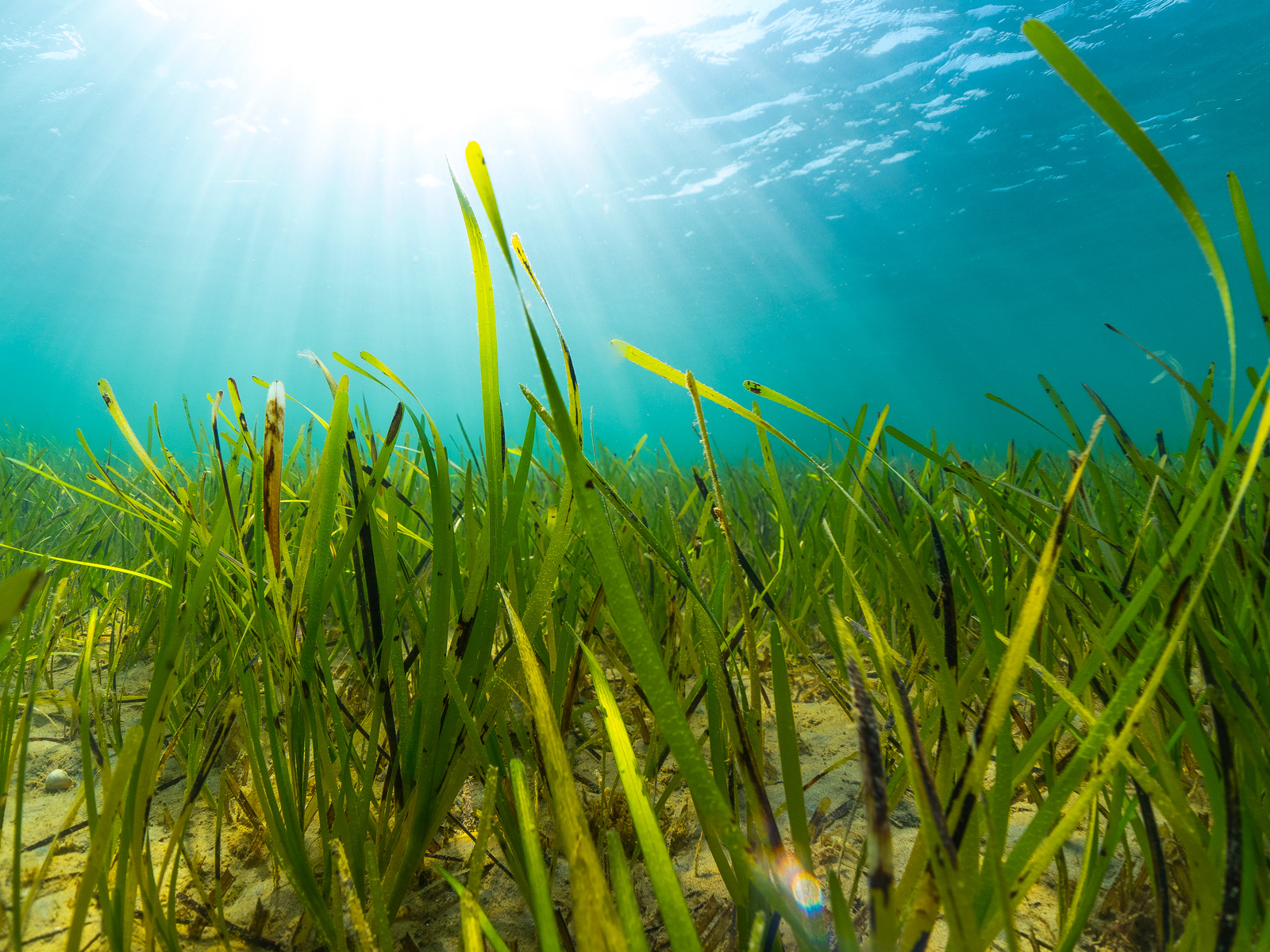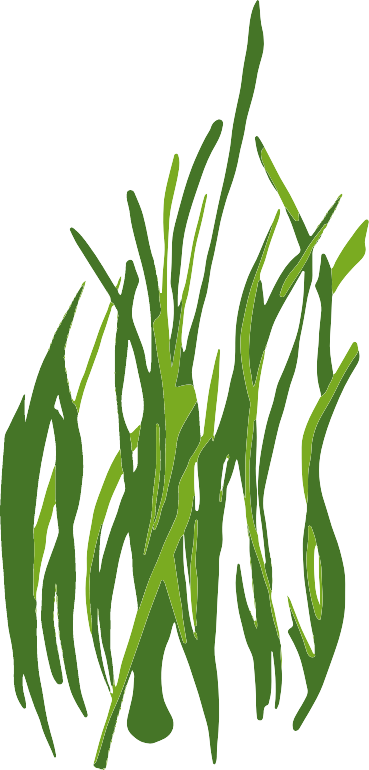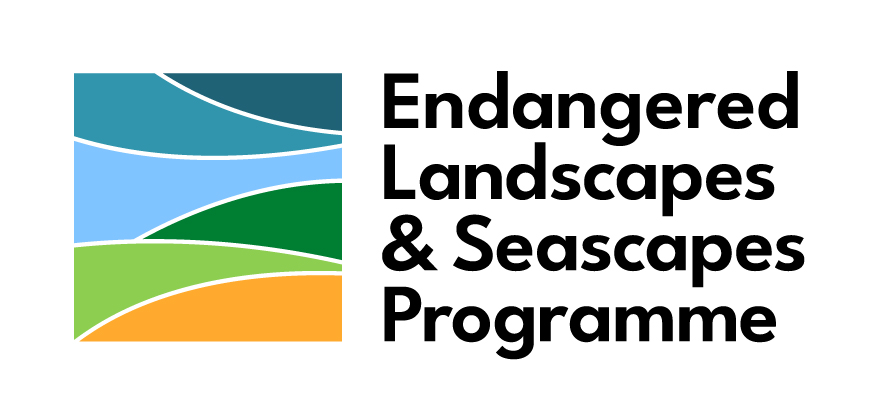Seagrass
Seagrass habitats support a spectacular diversity of marine life – from endangered seahorses to juvenile fish populations, they are critical to a healthy, functioning marine environment.

Seagrasses aren’t just important for marine life, the meadows they form help to store carbon and stabilise the sediment on our sea floors – which can help combat climate change and prevent coastal erosion. These important functions are called “ecosystem services”.
Because seagrass can help store carbon, they are often referred to as a “blue carbon” habitat. Seagrasses can capture carbon and move it to the underlying sediment. The restoration of blue carbon habitats – like seagrass and saltmarshes – offer a nature-based solution to the impacts of climate change and biodiversity loss. By protecting these habitats in an interconnected seascape, the ecosystem benefits they provide (such as sediment stabilisation) also support adjacent oyster reefs and saltmarsh habitats. In turn, the oyster reefs help to improve local water quality and allow the seagrasses to thrive in healthier waters.


Did you know that seagrass meadows are one of the only marine flowering plants in the world? These incredible plants are able to pollinate, reproduce and thrive in shallow sea waters. However, these species and the shallow coastal zones they inhabit are globally threatened. Here in the UK, estimates suggest that we have lost 92% of our seagrass meadows over the last century.

Although we have lost a large amount of our seagrass, because we know it used to be here, there is a high restoration potential for seagrass – particularly in areas where existing seagrass beds remain. In the Solent, we are working to actively restore seagrass meadows and protect the remaining habitats.
Our partners at Chichester Harbour Protection & Recovery of Nature and the Hampshire and Isle of Wight Wildlife Trust are conducting extensive habitat surveys across the Solent to map and monitor current distributions. Both the Trust and Project Seagrass are preparing for active restoration efforts by trialing innovative seagrass restoration techniques, with the outstanding support of local volunteers.
Find out how you can get involved with seagrass protection and restoration here.
The Solent Seascape Project Partners are


The Solent Seascape Project is supported by East Head Impact and the Endangered Landscapes & Seascapes Programme (ELSP), managed by the Cambridge Conservation Initiative and funded by Arcadia.

